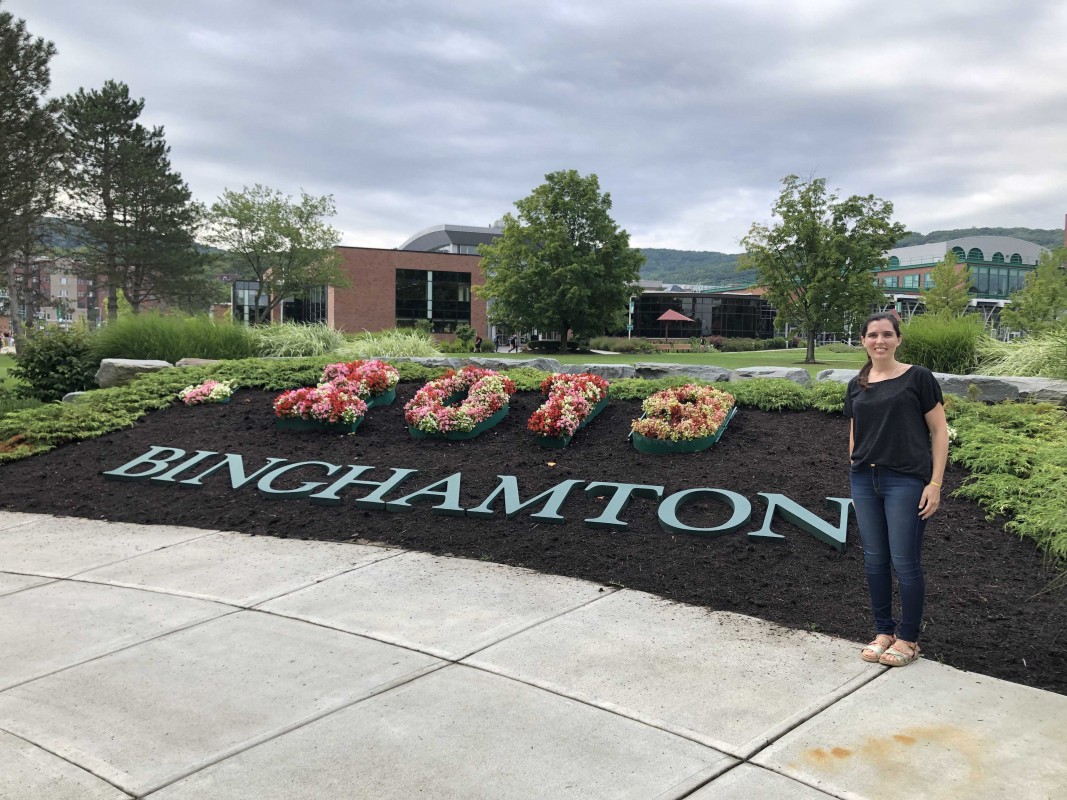The energy below: Fulbright scholar focuses on petroleum geology

A tropical inland sea covered much of New York state 450 million years ago, its muddy bottom transformed through the press of time into what we now call the Utica shale. Today, it’s mostly known for its natural gas deposits.
It’s also the research focus for Josefina Vizcaino, who is working toward her master’s degree in geological sciences.
She’s a Fulbright Scholar originally from La Plata, a city close to Buenos Aires in her native Argentina. The process to become a Fulbright Scholar is a lengthy one, lasting more than a year, but Vizcaino was driven by her desire to study in the United States — and further her trajectory in the oil and gas industry.
As a teen, she became interested in a different sort of energy emanating from underground: volcanos.
“When I was an undergraduate, I discovered a world I didn’t know in geology,” said Vizcaino, who earned her bachelor’s degree in her home country. “I discovered new interests in sedimentology and geochemistry. In geology, you have so many fields you can move into.”
After earning her bachelor’s at La Universidad Nacional de La Plata, she worked as a geoscientist for an oilfield service company in southern Argentina for six years, processing and interpreting data. She was one of few women in the largely male industry.
When she decided to pursue a graduate degree, Binghamton University soon came to the forefront of her search.
“It’s a perfect match with my geology history and my experience in the oil and gas industry,” she said. “My advisor also had that match, which caught my attention. He also has background in the industry.”
Her research, which she will complete by 2021, centers on the Mohawk Valley. She will study the transition from high-energy deposits — formed by moving water, which can transport larger particles — to low-energy deposits, found in deep or stagnant water.
“This low-energy layer has high potential for gas reserves,” she explained.
Her advisor — Associate Professor Jeffrey Pietras — has proven a clear and accessible guide, as have other professors, including Distinguished Professor Tim Lowenstein. Instructors and fellow graduate students also made Vizcaino’s Binghamton experience welcoming, including helping her with “little things, like looking for a place to stay,” she said.
“I am very happy that Josefina chose Binghamton and my research group for her graduate studies. She is a joy to work with,” Pietras said.
Vizcaino has grown more comfortable with English, made friends and, when the pandemic wasn’t a factor, enjoyed trips to New York City whenever she had the chance.
She hasn’t yet cemented her long-term plans. Perhaps she will return to Argentina and apply for a job on the operations side of the oil industry. Perhaps she will pursue her opportunities in the United States.
Wherever the current takes her, Binghamton University set the right foundation.
“Everything was perfect. The Binghamton program was all I was looking for,” she said.

